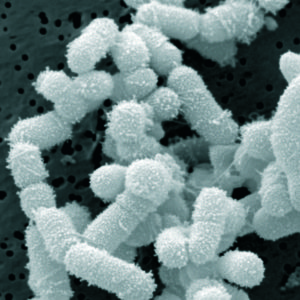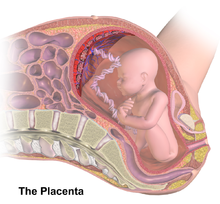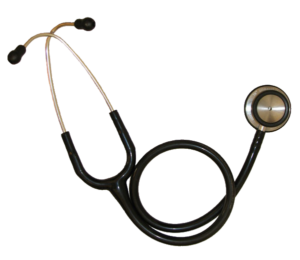 This is now the 9th year of successfully using only probiotics to treat sinusitis - both chronic sinusitis and regular sinus infections. This means no antibiotics or any other antibacterial has been used in more than 8 years! This is amazing – ten years ago I didn't believe this to be possible.
This is now the 9th year of successfully using only probiotics to treat sinusitis - both chronic sinusitis and regular sinus infections. This means no antibiotics or any other antibacterial has been used in more than 8 years! This is amazing – ten years ago I didn't believe this to be possible.
We (myself and family members) have accomplished this by using the amazing probiotic (beneficial bacteria) Lactobacillus sakei. This bacteria occurs naturally (in tiny amounts) in healthy sinuses, but is depleted or missing in those with sinusitis. I started using kimchi back in 2013 after reading research. The last few years I've used the refrigerated product Lanto Sinus, which contains a kimchi-derived strain of Lactobacillus sakei.
I have heard from hundreds of people since the blog started, and the majority agree - Lactobacillus sakei works great as a sinusitis treatment! (Other probiotic species just don't work.) [See Best Probiotics For Sinusitis for details on results and products used.]
What I've learned about Lactobacillus sakei:
- Only use it when needed, when there are some sinus symptoms or you're sliding towards sinusitis. Just like with antibiotics, you shouldn't take it daily and routinely.
- Swishing a product like Lanto Sinus in the mouth alone is a gentle and cautious way to use the product. Using it in the nostrils is a stronger way to use the product.
- Don't overdo it. Using a little bit in the nostrils (as described in Sinusitis Treatment Summary) is sufficient. Let the little buggers travel on their own throughout the sinuses!
- Use for a few days and evaluate whether you can stop or whether you need to keep using it longer. Frequently the sinuses keep improving even after stopping Lactobacillus sakei. One can always use more if needed.
- If Lactobacillus sakei works for a person, it can feel miraculous as sinusitis symptoms disappear, frequently within a few days. Others have slower improvement. Unfortunately, it doesn't work for everyone and only self-experimentation determines whether it does - after all, everyone's sinus microbiome is different.
- Lactobacillus sakei alone is enough to treat sinusitis. Don't need fancy concoctions or fancy protocols when using it. Using it should take under 1 minute a day!
- The sinus microbiome slowly improves, so we are using less and less of Lanto Sinus over time. There have been improvements in the sinuses – for example, this past year my snot is like it used to be decades ago before sinus problems. We are also getting fewer upper respiratory infections.
- My sense is that Lactobacillus sakei is colonizing in the sinuses, at least in the short term (weeks or months).
Hopefully this offers hope to sinus infection sufferers.
I also want to mention that I'm a consultant for Lanto Health, but that's because I really like the product and use it whenever needed.
Good health!

 Once again a study finds that more exercise and less sitting improves glucose metabolism and so reduces the risk of diabetes. Is anyone surprised anymore by the health benefits of physical activity?
Once again a study finds that more exercise and less sitting improves glucose metabolism and so reduces the risk of diabetes. Is anyone surprised anymore by the health benefits of physical activity? Good news for coffee lovers! Drinking 1 or more cups of coffee a day was associated with a reduced risk of heart failure in three large heart disease studies. However, drinking decaffeinated coffee was not.
Good news for coffee lovers! Drinking 1 or more cups of coffee a day was associated with a reduced risk of heart failure in three large heart disease studies. However, drinking decaffeinated coffee was not. Bleeding gums are usually considered a sign of gingivitis, and the typical advice is to brush and floss more. However, new
Bleeding gums are usually considered a sign of gingivitis, and the typical advice is to brush and floss more. However, new  Have you wondered whether a totally vegan diet for young children is healthy? Are they missing nutrients? A study from Finland attempted to answer this question by comparing young children eating vegan diets with those eating vegetarian and omnivore (both meat and plants) diets. A vegan diet contains no animal products, including eggs and dairy.
Have you wondered whether a totally vegan diet for young children is healthy? Are they missing nutrients? A study from Finland attempted to answer this question by comparing young children eating vegan diets with those eating vegetarian and omnivore (both meat and plants) diets. A vegan diet contains no animal products, including eggs and dairy. There is strong evidence for a link between the foods a person eats, the microbes that live in the person's gut (gut microbiome), and the person's health, according to a large
There is strong evidence for a link between the foods a person eats, the microbes that live in the person's gut (gut microbiome), and the person's health, according to a large 
 Microplastics, which are tiny pieces of plastic particles less than 5 millimeters in size, have now been found in human placentas. To find tiny plastic particles on both sides of the placenta (the baby's side and the mother's side), as well as in the placental membranes, is an alarming finding! Why is this occurring? And are they causing harm to the developing fetus?
Microplastics, which are tiny pieces of plastic particles less than 5 millimeters in size, have now been found in human placentas. To find tiny plastic particles on both sides of the placenta (the baby's side and the mother's side), as well as in the placental membranes, is an alarming finding! Why is this occurring? And are they causing harm to the developing fetus?
 Americans think that their system of healthcare is the best in the world. Nope. Not even close. Not even for privileged white Americans. We're number 13 in a recent ranking of 13 countries.
Americans think that their system of healthcare is the best in the world. Nope. Not even close. Not even for privileged white Americans. We're number 13 in a recent ranking of 13 countries.